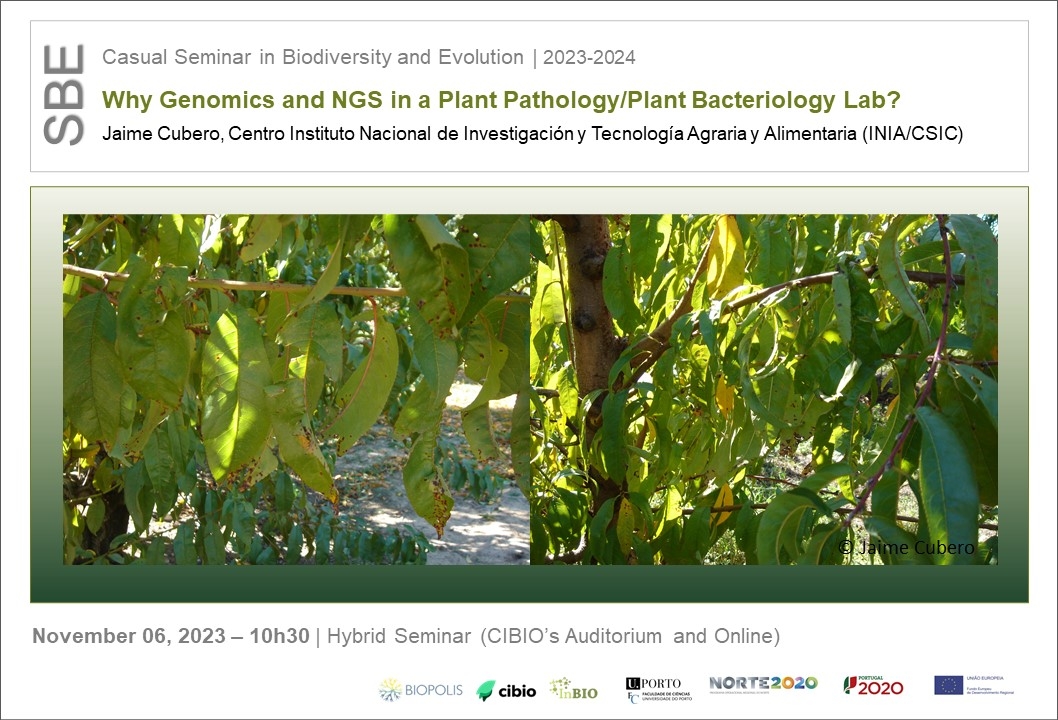Why Genomics and NGS in a Plant Pathology/Plant Bacteriology Lab?

In the talk, we will present the latest findings from the Bacteriology group regarding genomic studies in Xanthomonas, with a focus on practical aspects of high-throughput sequencing and genomics in a context of the development of plant control strategies. We will showcase research conducted on the species Xanthomonas arboricola, highlighting the applications of genomics studies in the pruni pathovar. Functional studies derived from genomic analyses on this bacterial model will also be mentioned. Special emphasis will be placed on the secretion systems of these bacteria and their potential role in the infectious processes.
I am a researcher at the National Institute for Agricultural and Food Research and Technology (INIA/CSIC). I obtained my Bachelor's degree in Molecular Biology and Biochemistry from the Autonomous University of Madrid, and pursued a Ph.D. in Microbiology from the University of Valencia. During my Ph.D., I conducted research on Agrobacterium tumefaciens at the Valencian Institute of Agricultural Research (IVIA).After completing my Ph.D., I spent nearly five years at the Citrus Research and Education Center (CREC) of the University of Florida (USA). During this time, my research focused on Citrus Bacterial Canker caused by Xanthomonas citri pv. citri, which is one of the most significant pathogens affecting citrus crops.In 2004, I returned to Spain and joined INIA/CSIC, where I established and currently lead the Bacteriology group. Our research in the group is primarily focused on two main areas of Plant Pathology/Plant Bacteriology.The first line of research involves bacterial identification and characterization, with the goal of providing tools for disease diagnosis and identifying bacteria that are capable of causing diseases and symptoms in plants. Through the development of rapid and accurate diagnostic tools, we strive to aid in the timely identification and control of plant diseases, thereby mitigating economic losses and promoting sustainable agricultural practices.The second line of research is focused on studying the molecular mechanisms of host-pathogen interactions and understanding the molecular basis of virulence processes. Within this line of research, we employ Next-Generation Sequencing (NGS) technologies to decode the genomes of key plant pathogenic bacteria. These groundbreaking studies not only shed light on the genetic makeup of these organisms but also provide crucial insights into their pathogenicity and virulence factors.Throughout my career, I have remained deeply committed to translating our research findings into practical solutions for farmers and agricultural communities.While our primary focus is on Xanthomonas, we also study other bacterial models. In recent years, we have expanded our research to include studies on Candidatus Liberibacter, which causes diseases such as citrus HLB, zebra chip in potatoes, and disorders in crops like carrots, celery, and more.Overall, my research endeavors aim to contribute to the advancement of knowledge in plant bacteriology, while simultaneously addressing the needs of the agricultural sector through the development of practical applications and solutions.
Click here to watch the seminar recording